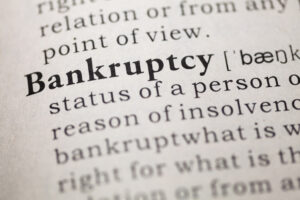 Bankruptcy can be a daunting concept. If you’re considering filing for bankruptcy, it’s important to be aware of the different types of bankruptcy and what they mean for your financial future. In this article, we’ll explore some of the most frequently asked questions about bankruptcy and what an attorney can do for you. Read on to learn more about bankruptcy, and see how the right lawyer can make all the difference.
Bankruptcy can be a daunting concept. If you’re considering filing for bankruptcy, it’s important to be aware of the different types of bankruptcy and what they mean for your financial future. In this article, we’ll explore some of the most frequently asked questions about bankruptcy and what an attorney can do for you. Read on to learn more about bankruptcy, and see how the right lawyer can make all the difference.
What Is Bankruptcy And How Does It Affect My Future?
Bankruptcy is a legal process that can help you get a fresh start if you’re unable to keep up with your debts. Filing for bankruptcy allows you to liquidate assets or reorganize your finances to pay off debts. However, filing for bankruptcy can negatively impact your credit score, making it more difficult to take out a loan, purchase a house, or even get a job. As a bankruptcy lawyer can explain, certain types of bankruptcy can stay on your record for up to ten years.
What Are The Different Types Of Bankruptcy?
There are several types of bankruptcy, including Chapter 7, Chapter 13, Chapter 11, and Chapter 12. Chapter 7 is a liquidation bankruptcy that involves selling off non-exempt property to pay off debts. Chapter 13 is also known as reorganization bankruptcy, and allows you to hold onto your assets while following a court-mandated payment plan.
While you may have heard of Chapter 11 on the news before, it doesn’t typically apply to individual people. Chapter 11 is a bankruptcy option for companies looking to reorganize their finances, while Chapter 12 is a bankruptcy option for family-owned farms and fisheries.
What Is The Difference Between Chapter 7 And Chapter 13 Bankruptcy?
Chapter 7 bankruptcy is typically the quickest and easiest way to file for bankruptcy. It involves selling off non-exempt assets to pay off debts. It’s quick and easy, but it’s much more extreme than the alternative.
On the other hand, Chapter 13 bankruptcy allows you to hold onto your assets while following a court-mandated payment plan. This type of bankruptcy is ideal for those who have a steady income but cannot afford to make all their debt payments.
What Happens When It’s Tax Season?
Unfortunately, when you file for bankruptcy, there are some debts you still have to pay off, including taxes, student loans, child or spousal support, and fines owed to the government. Additionally, if you owe someone money because you caused them injury while intoxicated, you will still have to pay them off. It’s always important to get in touch with a lawyer so you can learn more about what you’ll still have to pay off.
What Can An Attorney Do For Me?
The right legal team can help you navigate the entire bankruptcy process, from filing the necessary paperwork to representing you in court. They can also help you decide which type of bankruptcy is right for you and can negotiate with creditors on your behalf. A lawyer who specializes in bankruptcy can also ensure that you comply with all the rules and regulations of the bankruptcy process.
In conclusion, filing for bankruptcy can be a difficult and overwhelming process. But with the help of a qualified and experienced legal team, you can get the fresh start you need and deserve. Contact a lawyer today to learn more about your options and get started on the road to financial recovery.
